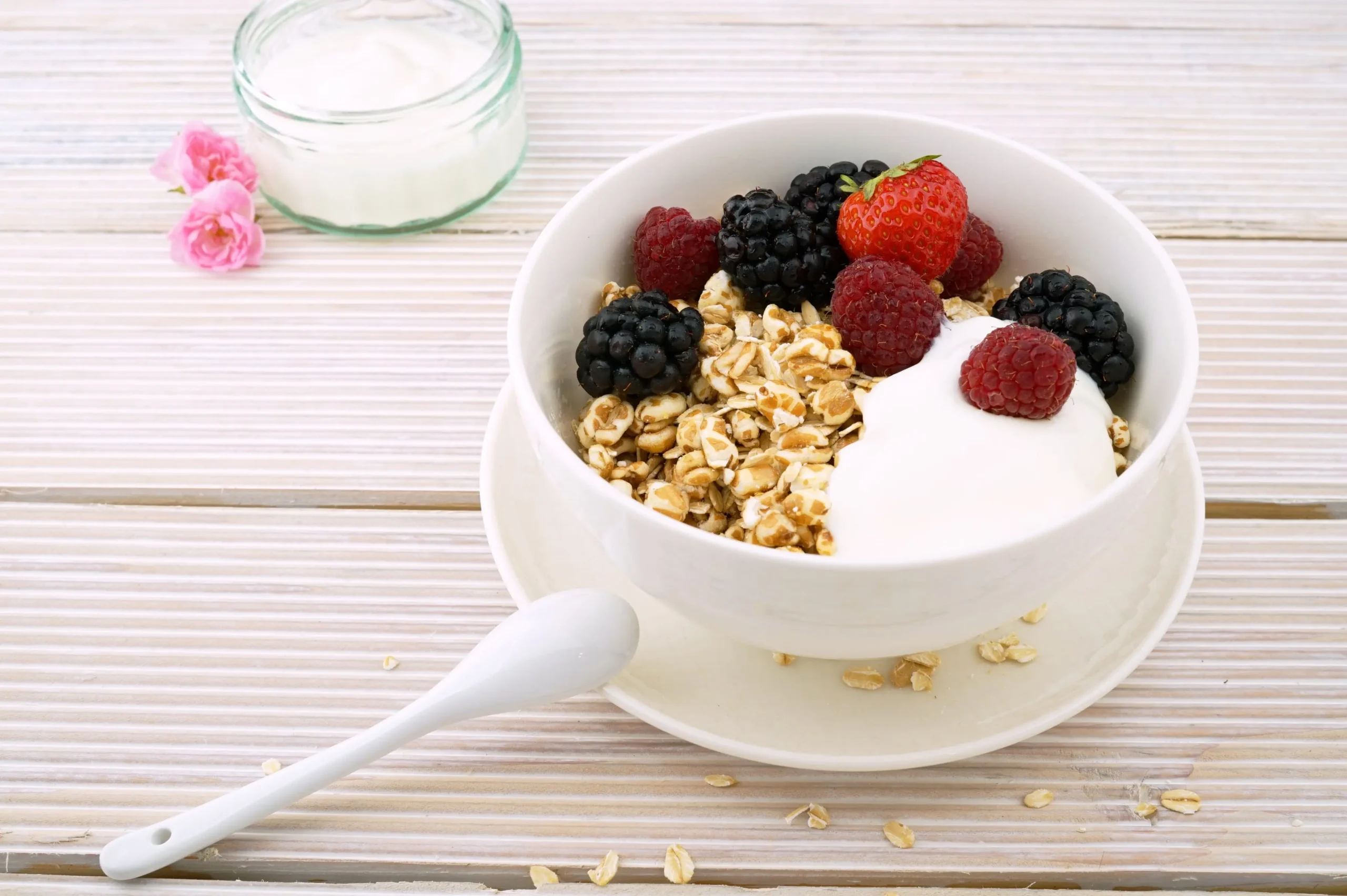As we stand on the brink of a new era, the world of nutrition is undergoing a revolutionary transformation. The days of one-size-fits-all dietary advice are long gone. Today, we delve into the fascinating realm of cutting-edge nutrition trends that are reshaping the way we perceive and consume food.
1. Introduction
Definition of Cutting-Edge Nutrition
Cutting-edge nutrition goes beyond traditional dietary guidelines. It involves embracing innovative approaches, leveraging technology, and staying at the forefront of scientific discoveries to optimize health through food.
Significance of Staying Updated with Nutrition Trends
In a fast-paced world, where information evolves swiftly, staying informed about the latest nutrition trends is crucial. It empowers individuals to make informed choices that align with their health and wellness goals.
2. The Rise of Personalized Nutrition
Customized Meal Plans
Personalized nutrition tailors dietary recommendations to an individual’s unique needs. This involves considering factors such as age, gender, activity level, and health conditions to create customized meal plans.
Genetic Testing for Dietary Recommendations
Advancements in genetic testing allow for a deeper understanding of one’s genetic makeup, enabling the creation of personalized diets based on genetic predispositions and nutritional needs.
Role of Technology in Personalized Nutrition
Technology plays a pivotal role in delivering personalized nutrition plans. From AI-driven apps to smart kitchen devices, technology ensures precision in crafting diets that resonate with an individual’s biology.
3. Plant-Based Revolution
Beyond Meat and Impossible Foods
The plant-based revolution is exemplified by companies like Beyond Meat and Impossible Foods, offering meat alternatives that mimic the taste and texture of traditional animal-based products.
Growing Popularity of Plant-Based Diets
Consumers are increasingly embracing plant-based diets for health and environmental reasons. This trend extends beyond vegetarians and vegans, reaching a broader audience seeking sustainable and nutritious alternatives.
Environmental Impact and Sustainability
The environmental impact of conventional livestock farming has led to a surge in plant-based diets, contributing to sustainability efforts and reducing the carbon footprint associated with food production.
4. Functional Foods and Nutraceuticals
Definition and Examples
Functional foods go beyond basic nutrition, offering additional health benefits. Nutraceuticals, a fusion of “nutrition” and “pharmaceuticals,” refer to food components with medicinal properties.
Health Benefits Beyond Basic Nutrition
Functional foods and nutraceuticals are designed to address specific health concerns, ranging from heart health to cognitive function, showcasing the potential of food as medicine.
Market Trends and Consumer Preferences
The market for functional foods and nutraceuticals is on the rise, driven by consumer awareness and a growing desire for proactive health management through dietary choices.
5. Microbiome and Gut Health
Understanding the Microbiome
The microbiome, a complex ecosystem of microorganisms in the digestive tract, plays a crucial role in nutrient absorption, immune function, and overall well-being.
Importance of Gut Health in Overall Well-being
Maintaining a healthy balance of gut bacteria is linked to improved digestion, mental health, and even immune system resilience. This has sparked a renewed focus on gut-friendly foods.
Probiotics, Prebiotics, and Gut-Friendly Foods
Probiotics, beneficial bacteria found in fermented foods, and prebiotics, non-digestible fibers that nourish gut bacteria, are gaining popularity as essential components of a gut-healthy diet.
6. Innovations in Food Technology
Lab-Grown Meat and Cultured Seafood
Advancements in food technology have given rise to lab-grown meat and cultured seafood, providing sustainable alternatives to conventional animal farming.
3D Printing of Food
The concept of 3D printing extends beyond manufacturing to food production. 3D printers can create intricate and personalized food structures, revolutionizing culinary experiences.
Nanotechnology in Food Production
Nanotechnology is enhancing the quality and safety of food by allowing for precise control at the molecular level, ensuring optimal nutrient retention, and reducing the need for preservatives.
7. Mindful Eating and Mind-Body Connection
Mindful Eating Practices
Mindful eating involves paying full attention to the sensory experience of eating, promoting a healthier relationship with food, and preventing overeating.
Impact of Stress on Nutrition
The mind-body connection highlights the impact of stress on nutritional choices. Stress management practices are becoming integral to holistic approaches to health and nutrition.
Holistic Approach to Health
Beyond calorie counting, holistic approaches to health consider the interplay of physical, mental, and emotional well-being, emphasizing the importance of a balanced lifestyle.
8. The Influence of AI on Nutrition
AI-Based Dietary Apps
AI-driven apps analyze dietary patterns, preferences, and nutritional needs, providing users with personalized recommendations for optimal health.
Data Analysis for Personalized Recommendations
The vast amounts of data available on nutrition and health are analyzed by AI algorithms to identify patterns and correlations, refining dietary advice for individuals.
AI in Food Production and Quality Control
Artificial intelligence is also employed in food production, ensuring quality control and safety standards, from farm to table.
9. Alternative Protein Sources
Insect-Based Proteins
Insects, rich in protein and environmentally sustainable, are gaining attention as an alternative protein source, challenging conventional perceptions of protein.
Algae and Seaweed as Protein Sources
Algae and seaweed are nutrient-dense and environmentally friendly protein sources, showcasing the diversity of options available beyond traditional meat and plant-based alternatives.
Future Trends in Protein Innovation
The exploration of alternative protein sources is expected to drive innovation, providing consumers with more choices that align with health, sustainability, and ethical considerations.
10. The Role of Blockchain in Food Traceability
Ensuring Food Safety
Blockchain technology enhances transparency in the food supply chain, ensuring that consumers have access to accurate information about the origin and safety of their food.
Transparent Supply Chains
Blockchain’s decentralized nature prevents tampering with food-related data, establishing trust by creating transparent and traceable supply chains.
Consumer Confidence and Trust
As concerns about food safety and authenticity grow, blockchain technology instills confidence in consumers, fostering trust in the food industry.
11. Culinary Medicine and Fusion Diets
Integration of Nutrition and Culinary Arts
Culinary medicine integrates nutritional science with the art of cooking, recognizing that delicious and nutritious meals can coexist for optimal health.
Fusion of Traditional and Modern Diets
Fusion diets blend traditional culinary practices with modern nutritional knowledge, creating a harmonious approach that honors cultural diversity and individual preferences.
Culinary Medicine as a Preventive Approach
Viewing food as medicine is not just a metaphor. Culinary medicine emphasizes the preventive and therapeutic potential of a well-balanced, nutrient-rich diet.
12. Hydration Beyond Water
Functional Beverages
Hydration goes beyond water, with the emergence of functional beverages infused with vitamins, electrolytes, and other beneficial components.
Electrolyte-Infused Drinks
Electrolyte-infused drinks cater to specific hydration needs, supporting individuals engaged in intense physical activities or requiring rapid rehydration.
Future of Hydration Technology
Innovations in hydration technology are exploring ways to enhance the effectiveness of beverages, ensuring optimal hydration and nutrient delivery.
13. Biohacking for Optimal Nutrition
Definition of Biohacking
Biohacking involves leveraging science and technology to optimize one’s biology, including nutrition. It explores ways to enhance nutrient absorption and overall health.
Nootropics and Smart Supplements
Nootropics, substances believed to enhance cognitive function, and smart supplements are part of the biohacking toolkit, aiming to boost mental clarity and focus through nutrition.
DIY Approaches to Enhancing Nutrient Absorption
Biohackers experiment with do-it-yourself approaches to enhance nutrient absorption, exploring personalized strategies that go beyond conventional dietary advice.
14. Sustainable Food Packaging
Eco-Friendly Packaging Solutions
The environmental impact of packaging is under scrutiny, leading to the development of eco-friendly solutions that reduce waste and promote sustainability.
Impact of Packaging on Food Quality
Packaging plays a crucial role in maintaining the quality and freshness of food. Innovations focus on preserving nutritional content while minimizing environmental impact.
Consumer Awareness and Choices
As consumers become more environmentally conscious, sustainable packaging choices become a significant factor in their purchasing decisions, influencing the food industry to adopt eco-friendly practices.
15. Immunity-Boosting Foods
Nutrients for Immune Support
Certain nutrients, such as vitamin C, zinc, and antioxidants, play a vital role in supporting the immune system, leading to a growing interest in immunity-boosting foods.
Superfoods and Antioxidants
Superfoods, rich in antioxidants and other beneficial compounds, are gaining popularity for their potential to enhance overall health and immunity.
Dietary Strategies for a Resilient Immune System
Beyond individual nutrients, dietary patterns that support overall well-being are recognized as key components in maintaining a resilient immune system.
16. The Social Aspect of Eating
Communal Dining Experiences
The social aspect of eating is evolving, with communal dining experiences gaining popularity as people seek connection and shared enjoyment of food.
Virtual Foodie Communities
Online platforms and social media create virtual foodie communities, where individuals share culinary experiences, recipes, and nutritional insights, fostering a sense of global gastronomic camaraderie.
Social Media’s Influence on Food Trends
The visual appeal of food shared on social media platforms significantly influences food trends, shaping consumer preferences and driving culinary innovation.
17. Ethical Consumption and Food Choices
Fair Trade and Ethical Sourcing
Ethical considerations play a crucial role in food choices, with a growing demand for fair trade and ethically sourced products that prioritize the well-being of producers and the environment.
Conscious Consumerism
Conscious consumerism involves making choices that align with ethical, social, and environmental values, influencing purchasing decisions in the food industry.
Impact on the Food Industry
As consumers become more ethically conscious, the food industry responds by adopting sustainable and socially responsible practices to meet the evolving demands of conscious consumers.
18. Food as Medicine: A Holistic Approach
Healing Foods and Anti-Inflammatory Diets
Certain foods possess healing properties, and anti-inflammatory diets focus on reducing inflammation in the body, promoting overall health.
Integrative Nutrition in Healthcare
The integration of nutrition into healthcare practices recognizes the role of diet in preventing and managing various health conditions, emphasizing a holistic approach to well-being.
Collaborative Efforts in Nutrition and Medicine
Collaboration between nutritionists, healthcare professionals, and culinary experts fosters a holistic approach that considers both the nutritional and medical aspects of individual health.
19. Challenges and Controversies in Cutting-Edge Nutrition
Ethical Dilemmas in Lab-Grown Meat
While lab-grown meat presents a sustainable alternative, ethical concerns and debates surrounding its production methods continue to surface. Questions about the treatment of cultured cells and the environmental impact of large-scale production challenge the ethical landscape of this innovative protein source.
Misinformation in the Health and Wellness Industry
In an era flooded with information, discerning fact from fiction is a challenge. The health and wellness industry is not immune to misinformation, and navigating through conflicting advice requires a critical mindset and reliance on credible sources.
Balancing Innovation with Tradition
The pursuit of cutting-edge nutrition should harmonize with traditional dietary practices. While embracing innovations, it’s essential to acknowledge the cultural significance of time-tested food traditions and strike a balance between modernity and heritage.
20. Conclusion
Recap of Key Nutrition Trends
The future of food is dynamic, embracing a multitude of trends that redefine how we nourish our bodies. From personalized nutrition and plant-based revolutions to advancements in food technology and sustainable practices, each trend contributes to a rich tapestry of dietary possibilities.
Embracing a Future of Holistic and Sustainable Nutrition
As we move forward, the key lies in embracing a future where nutrition is not just about individual health but is intertwined with sustainability, ethics, and cultural appreciation. A holistic and sustainable approach to nutrition ensures that we not only thrive personally but also contribute to the well-being of the planet.
FAQs
Is the Paleo diet suitable for everyone? The Paleo diet focuses on whole foods but may not suit everyone’s lifestyle. Consult with a nutritionist for personalized advice.
How do personalized nutrition apps work? Personalized nutrition apps use individual health data to provide tailored dietary recommendations, enhancing your overall well-being.
Are plant-based proteins as effective as animal-based ones? Yes, plant-based proteins can be equally effective, providing essential nutrients without the environmental impact associated with animal farming.
What is the gut microbiome, and why is it important? The gut microbiome refers to the community of microorganisms in the digestive tract. It plays a crucial role in digestion, nutrient absorption, and overall health.
Can intermittent fasting help with weight loss? Intermittent fasting can contribute to weight loss by promoting a calorie deficit. However, it’s essential to adopt this practice under proper guidance.
How can I incorporate international flavors into my local diet? Experiment with spices, herbs, and cooking techniques from different cuisines to add a global flair to your local meals.



